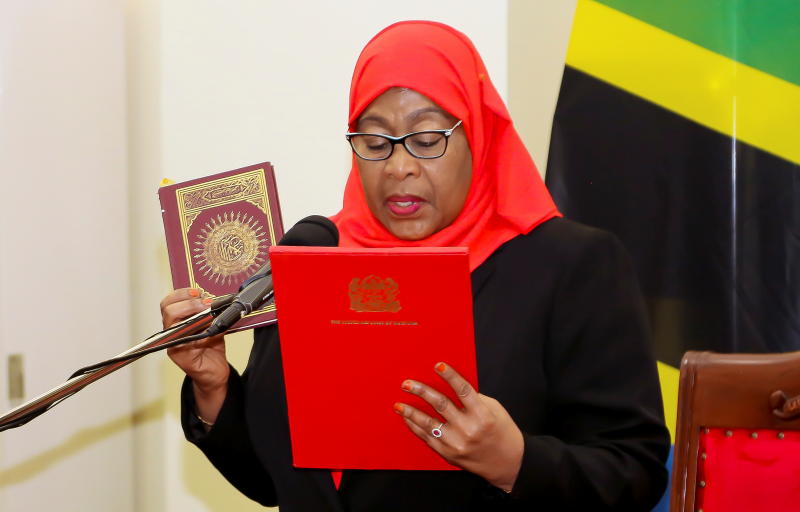×
The Standard e-Paper
Stay Informed, Even Offline

Gender inequality remains a global challenge to women seeking political leadership. With several countries making progress to achieve gender parity, the swearing-in of Samia Suluhu Hassan as the president of Tanzania, brings a new dawn to women’s leadership in Africa.
Born on January 17, 1960, a native of Zanzibar, a semi-autonomous archipelago, Suluhu made history of being the first female president in East Africa. She took over power after her predecessor John Pombe Magufuli died in office.